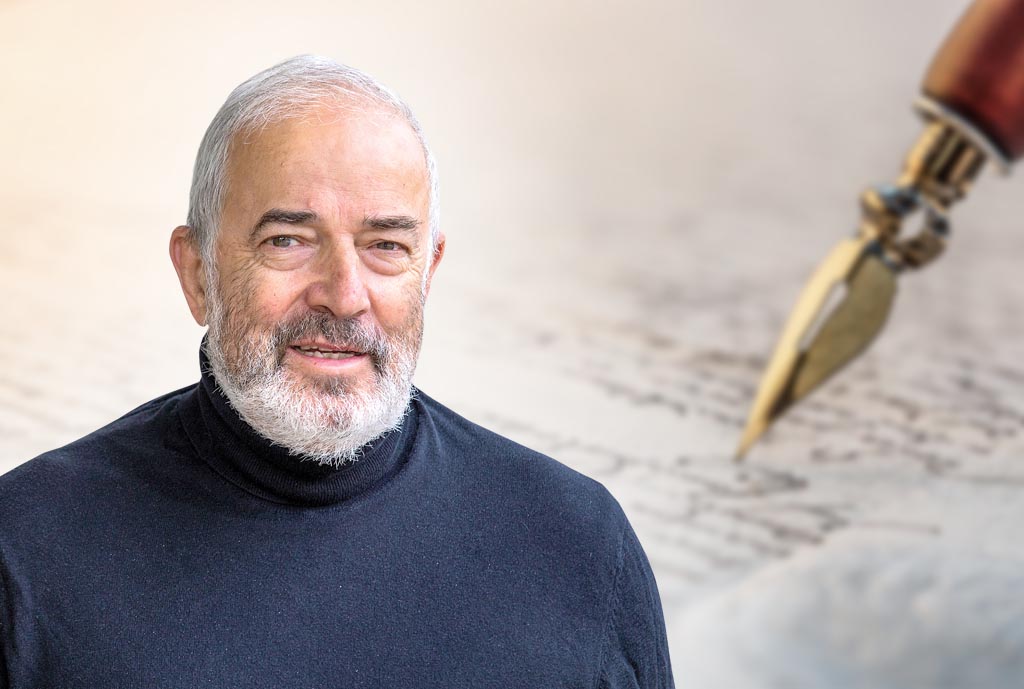By: Mag Igor Omerza
A scientific conference on Franc Jeza will be held in Trieste on September 20th, organised by the Study Centre for National Reconciliation and the Trieste Society of Slovenian Intellectuals. This marks 40 years since the death of this greatest Slovenian ideological independence activist. On this occasion, as part of my series of books Giants of Slovenian Independence and Udba, I will be premiering the work Franc Jeza – Separatist. Under this (quite fitting) code name, the secret political police of the Slovenian communist leadership tracked, harassed, and attempted to kidnap Franc Jeza in exile.
Boris Pahor asked me at least twice to write a book about the émigré Franc Jeza, as he considered this small man, who fled to Italy in November 1948, to be an exceptionally important promoter of Slovenian culture in Trieste. In fact, I had been planning to write a book about Jeza even before I met Pahor. However, I never intended to write about Jeza’s significant “Trieste cultural” contribution, as I am not equipped to write that kind of work. Instead, my focus was on how and why the Slovenian Udba (the secret police) stalked him and what has been preserved in its secret documents.
Of course, the Udba also reported on Franc Jeza’s cultural activities, but the majority of the preserved “Jeza-related” Udba writings focus on his sharp criticism of the undemocratic regime in Yugoslavia (Slovenia), his disdain for the communist dictator Tito and his red court, and especially Jeza’s almost “fanatical” commitment to the idea of an independent Slovenian state. I believe that Slovenian national history does not have a more passionate and unwavering advocate of the idea of an independent Slovenia than the “Trieste-based” Jeza.
Jeza first appears in the preserved Udba documentation in 1946 and lastly in July 1984 (he passed away on January 20th of that year). Jeza came more intensely under the Udba’s radar after he “escaped” to Trieste in November 1948 because, although he had been a rebel against fascism, Nazism, and a member of the Liberation Front, he could no longer endure the domestic Stalinist torture.
What most bothered the Udba agents, of course, was his pro-independence stance, which became clear in his four collected works Alternativa (1978), Iniciativa (1979), Demokracija (1980), Akcija (1981), and Neodvisna Slovenija (1983). The Udba closely monitored and reported to the Slovenian communist leadership about what was written in these publications, and they seized copies as they circulated in Slovenia.
Taken together, this series of five volumes represents the most comprehensive programme for an independent Slovenian state, which was only surpassed by the work of Nova revija, though not by issue 57, but by issue 95 in March 1990, just before the first post-war democratic parliamentary elections in Slovenia. In this issue, titled Independent Slovenia, 41 authors – together with an editorial foreword and Demos’ introductory Declaration of Slovenian Self-Determination – addressed all the relevant areas of the forthcoming Slovenian “national” statehood.
In general, not just about him and the Slovenian secret police, I can say the following sharp but true words about Franc Jeza: it is a shame that decades after the actual creation of the sovereign Slovenian state, he remains a relatively unknown figure, even though his monument should have been standing in the heart of our country, in Ljubljana, long ago. Ideally, it should be placed where the statue of the great mass murderer and anti-independence figure Edvard Kardelj now stands, or where another similar figure, Boris Kidrič, “poses”. Instead, new monuments are being erected to Udba informant Peter Božič (two monuments in Ljubljana), the giant of Slovenian anti-independence, Janez Stanovnik (two monuments, in Ljubljana and Nova Gorica), and other similar insults to Slovenian statehood, such as Türk’s awarding of a medal to Udba agent and anti-independence figure Tomaž Ertl, the government’s granting of military funeral honours to Franc Jeza’s secret persecutor, Udba agent Janez Zemljarič, and the military honours given to the late last premier of the failed socialist Slovenia, Dušan Šinigoj. Not to mention the closure of the Museum of Independence and the abolition of the National Day of Remembrance for the Victims of Communist Violence. Here I could slightly alter a line from Virgil’s Aeneid, which goes: “So much effort it took to found the Roman people” into “Much effort will still be needed to appropriately remember Franc Jeza, one of the founders of the Slovenian state.”
And the book Franc Jeza – Separatist, which is about to be released (published by Mladika), is my contribution to this “effort” for that purpose!

